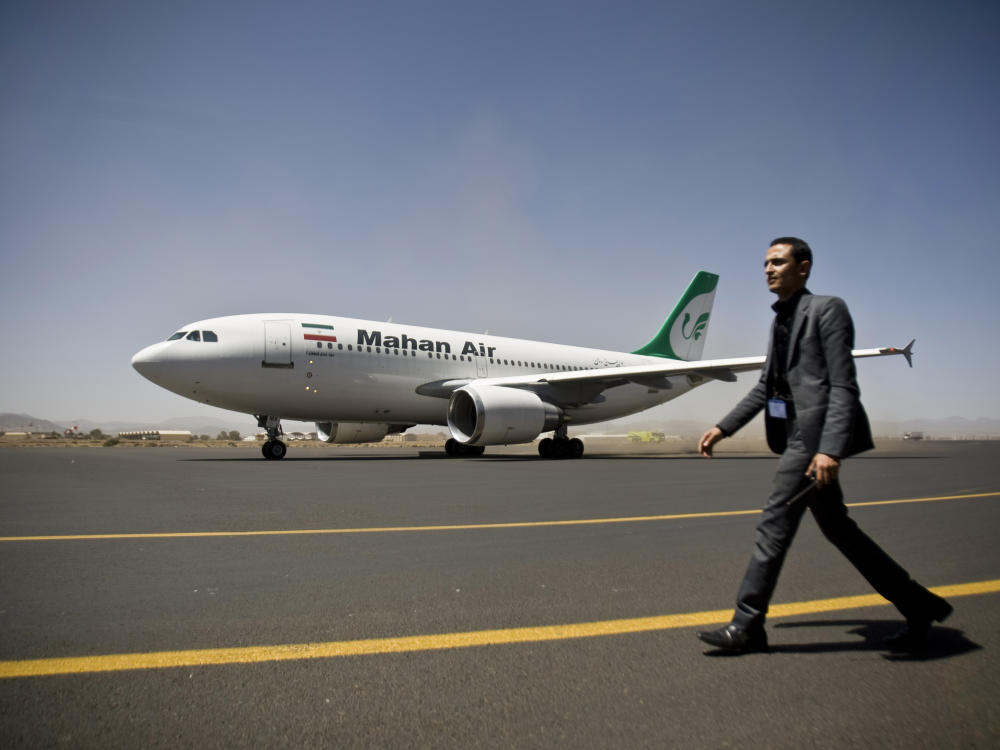Iranian President Hassan Rouhani is on a goodwill tour through Italy and France this week, trying to drum up investment for his country’s sanctions-battered economy.
But Iran still faces challenges that make it hard for companies to do business with Tehran.
In a move that was loudly celebrated in Iran, the United States and other countries earlier this month agreed to lift an economic embargo that had been imposed in 2012 in an effort to curb Iran’s nuclear program.
The move means that companies in Europe, Asia and elsewhere are free to invest in and trade with Iran. And many seem interested in doing so.
“What we know is that there are many firms in Europe that are eager to enter into Iranian markets,” says Nader Habibi, a professor of Middle East economics at Brandeis University. “There is no shortage of those. Many of them have already made initial trips to prepare the ground for partnership or investment in Iran.”
But doing business in Iran presents special challenges, and the reasons have to do with U.S. policy.
While the U.S. government has agreed to lift the nuclear sanctions against Iran, it continues to impose other sanctions over Iran’s human rights policies and support for terrorism. These sanctions bar American citizens and companies from most forms of investment or trade with the country.
In theory, those sanctions should affect only U.S. companies — but in reality, the law’s reach goes well beyond U.S. borders, Habibi says.
The U.S. financial sanctions “can still cause some problems and make some of the European businesses and banks subject to U.S. economic punishment,” he says.
The Treasury Department’s Office of Financial Assets Control “has made it very clear that no payments linked to Iran may be processed through the U.S. financial system,” says Julia Pfeil, senior associate at the Baker & McKenzie law firm in Frankfurt, Germany.
“So if you receive money from Iran as a bank or a company,” she says, “you must make sure that this money does not then go to the U.S. or to a U.S. bank or to your U.S. subsidiary.”
That means foreign financial institutions doing business in the United States — and almost any bank of any consequence has substantial U.S. operations — must somehow segregate any Iranian money they hold from their U.S. assets. That’s difficult to do, Pfeil says. There’s no easy way to isolate Iranian money from the rest of the bank’s holdings.
“In a bank, you don’t have separate financial streams,” she says. “You have the money that goes more or less into a big pool. Of course, it is possible to find out which payment has gone where. But ultimately controlling so that, say, 20 euros that have come from Iran do not end up in the U.S. — that is a very big problem for banks.”
Beyond this, says Jimmy Gurule, a former Treasury Department official who now teaches at Notre Dame Law School, “Foreign financial institutions need to be very careful [because], while they may not be running afoul of the nuclear sanctions because they’ve been lifted, doing business with Iran in a particular set of transactions may run afoul of the counterterrorism sanctions.”
Foreign banks are especially nervous about violating U.S. sanctions laws because they have sometimes been hit with hefty fines for doing so. In 2014, France’s largest bank, BNP Paribas, agreed to pay a $9 billion penalty for helping clients in Sudan, Cuba and Iran evade sanctions.
“So what we are hearing from Europe is that although European sanctions are lifted, the banks, especially major banks which transact with the United States, are very cautious,” Habibi says.
Companies that want to do business in Iran have to first find banks that will work with them, Pfeil says. That means using small banks with no significant operations in the U.S. or even Iranian banks.
Still, Gurule believes the Iranian market will ultimately prove irresistible to some businesses.
“I think the economic incentive may just be too great an allure for the counterterrorism sanctions to have a chilling effect and prohibit them from doing business with Iran altogether,” he says.
But these companies will first have to decide whether the allure of Iran is worth the risks they’ll face when they do business there.
9(MDA3MTA1NDEyMDEyOTkyNTU3NzQ2ZGYwZg004))
